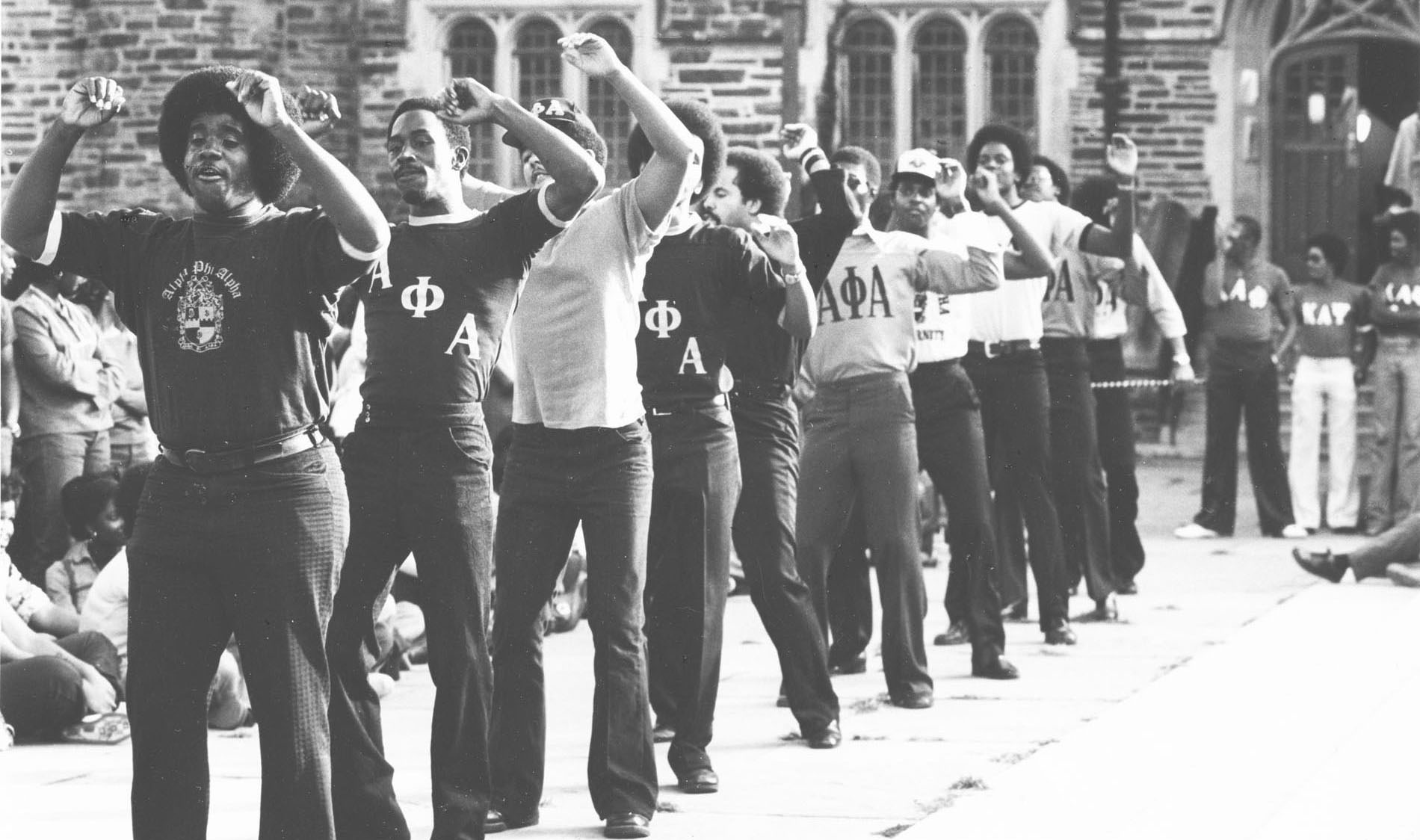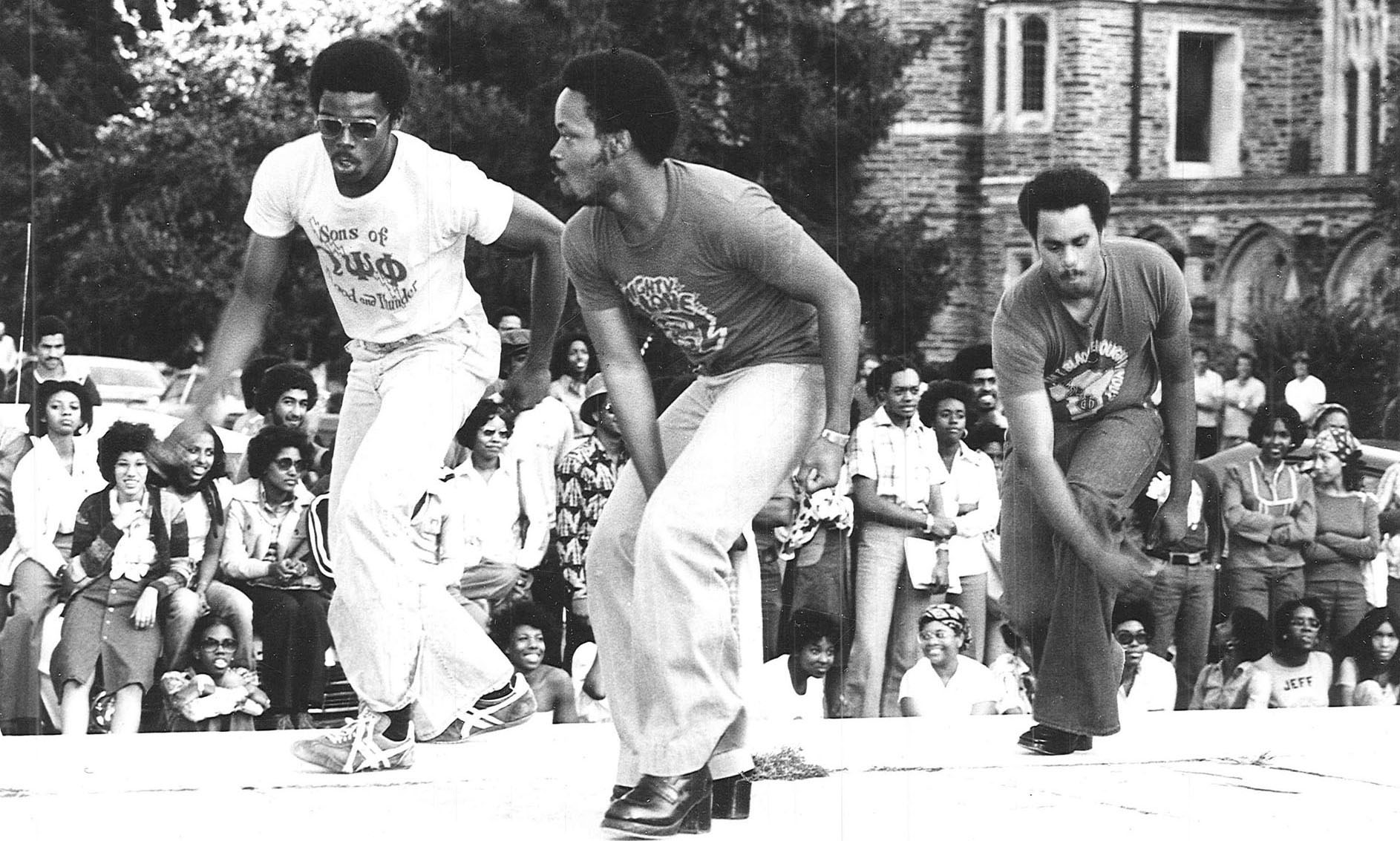Historically Black Greek organizations have been in the news recently. Presidential contender and Vice President Kamala Harris is a member of Alpha Kappa Alpha Sorority Inc., which she joined while a student at Howard University. She is among more than 360,000 members – sorors, or sisters – of this sorority, which is one of nine historically Black fraternities and sororities recognized as the “Divine Nine.”
Four of the nine organizations were originally founded at Howard University more than a century ago; others were established at other historically Black universities as well as at predominantly white institutions. There are now hundreds of chapters across the United States and beyond. They serve as important social, educational and political entities for their members.
Currently, Duke has chapters for seven of the Divine Nine:
- Alpha Kappa Alpha Sorority Inc., Iota Mu chapter, established 1975
- Alpha Phi Alpha Fraternity Inc., Kappa Omicron chapter, 1975
- Delta Sigma Theta Sorority Inc., Lambda Omega chapter, 1975
- Kappa Alpha Psi Fraternity Inc., Iota Xi chapter,1976
- Omega Psi Phi Fraternity Inc., Omega Zeta chapter, 1974
- Phi Beta Sigma Fraternity Inc., Alpha Alpha Chi chapter, 1993
- Zeta Phi Beta Sorority Inc., Nu Omicron chapter, 1993
Five of them are celebrating their 50-year milestones between now and 2026, and it is illuminating to look back at their origins here at Duke.
Omega Psi Phi has the honor of being the first Black fraternity chapter established at Duke. Its formation was reported in The Chronicle on April 22, 1974, under the headline “13 Duke blacks organize fraternity.” Reche Williams, the chapter leader (called in Omega Psi Phi the “basileus”) told the reporter, John Cranford, that the group was open to all, “but they have to measure up to certain virtues, such as loyalty, responsibility and scholarship.” Other fraternities at Duke “are not geared to black students,” he said.

The 13 original members of Omega Psi Phi, nicknamed the “13 Commandments,” were the first to bring onto campus activities like step-dancing, a choreographed dance common to Black fraternities but relatively unfamiliar among the Duke student body in the 1970s. As the other fraternities, Alpha Phi Alpha and Kappa Alpha Psi, and sororities, Alpha Kappa Alpha and Delta Sigma Theta, became established over the next couple of years, they participated in annual group step shows, often on the main quad. These were held at homecoming and during the spring Black Student weekend for prospective students.
The fraternities also required pledges to walk “on line,” which meant forming a highly disciplined unbroken line as they traveled the campus, and sometimes dressing alike. Walking on line formed a bond among the men and demonstrated their dedication to their fraternity. A Chronicle article from 1979 reported an Interfraternity Council meeting in which it was reported that some white students had tried to “break” the lines. A representative for student affairs explained that “mocking the line was like mocking Sigma Phi Epsilon pledges who were dressed in tuxedos and carrying trays” in the Blue and White Room, as was a pledging tradition of that fraternity. An article later that year reported that some of the problems had been resolved, but cultural differences remained.
Black Greek organizations were and are highly service oriented: volunteering with children and the elderly, fundraising for scholarships, and participating in local causes. In a February 1979 Chronicle article, T.C. Adams, president of Alpha Phi Alpha, said that Black fraternities “provide leadership and service for the Black community.” Being a member at Duke also plugged one into a network of local and national members. It not only personally benefitted the members but opened Duke up to the community. At a recent commemoration of the 50th anniversary of Omega Psi Phi, one of the original 13 Commandments, Michael Morgan, noted that “there were those in Durham that recognized that if Duke was willing to accept Black Culture, then now is the time to make some inroads into Duke from ‘our Durham.’”
Today, Black fraternities and sororities form the National Pan-Hellenic Council at Duke. Beginning in the 1990s, other students started Greek organizations for those who identify as Latino, Asian or Native American, and these chapters are now part of the Multicultural Greek Council. These newer chapters offer students the same kinds of benefits that the Black chapters provided 50 years ago – a sense of unity, support, service and advocacy.
